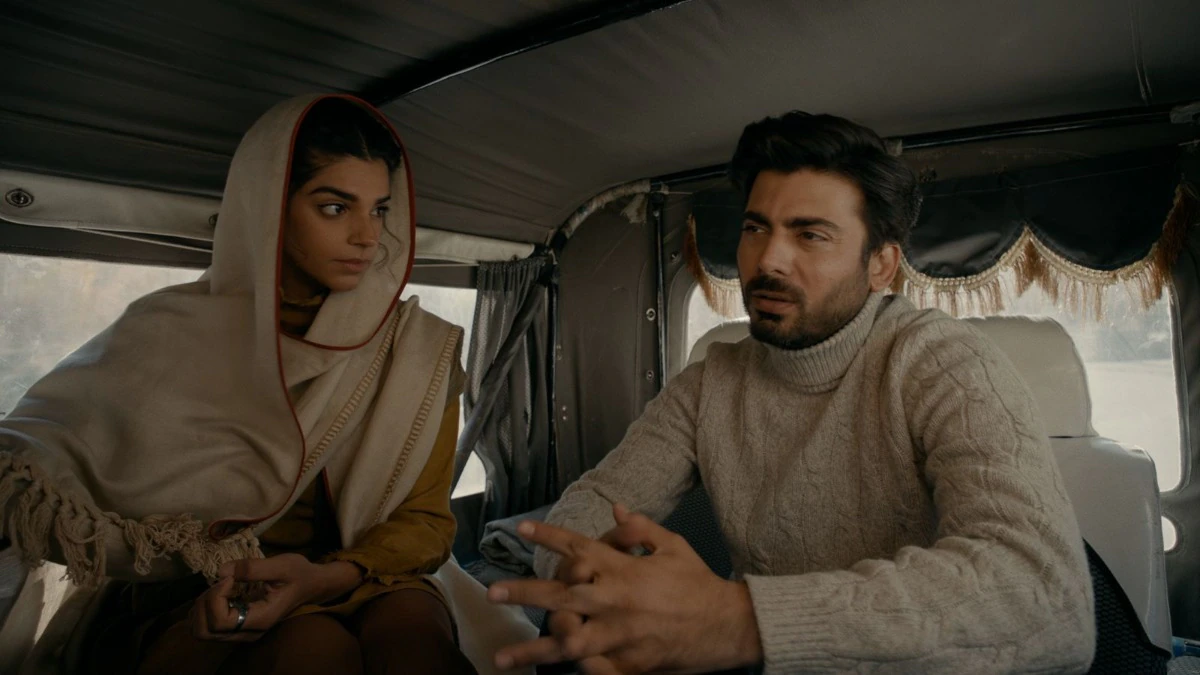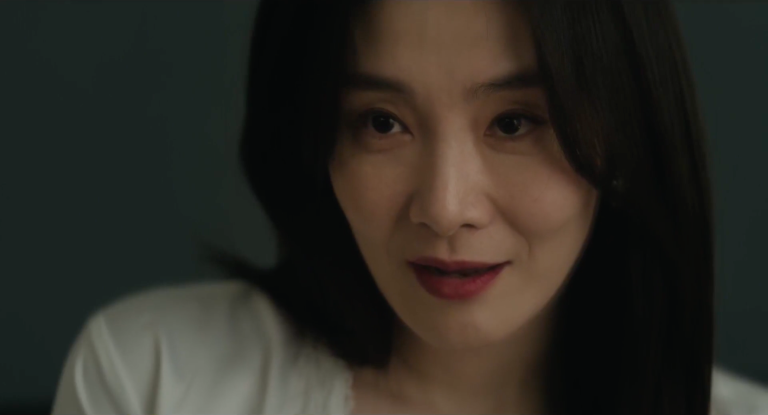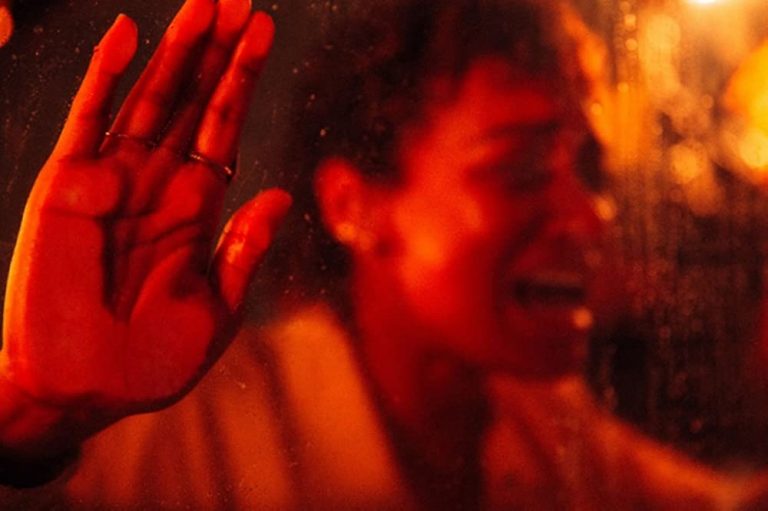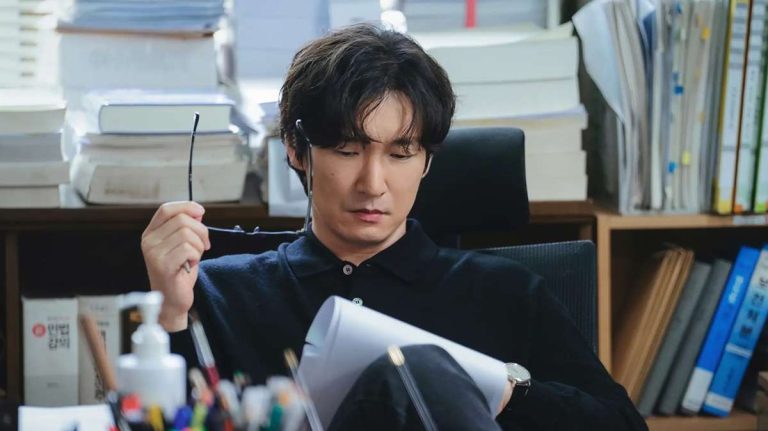Set in the Land of Nowhere, Jafar (Salman Shahid) has invited his sons, Shehryar (Fawad Khan) and Saifullah (Fawas M. Khan), to spend a few days in his house, Mahtab Mahal, as he wishes to reunite with his old lover in a wedding ceremony. However, speculations run high as this fabled lover is believed to be long dead, and Jafar, now caregiven by Scheherezade (Sanam Saeed), is an old man possibly suffering from dementia. Besides, the locals seem to be completely against this union.
As Shehryar arrives with his 8-year-old son, Harris (Syed Arrham), at Jafar’s residence, ghosts of emotions past resurrect. Old wounds and dysfunctional bonds act up among the fathers and the sons, and what unfolds over 6 almost-hour-long episodes is a creation that leaves you spellbound. Written and directed by Asim Abbasi, “Barzakh” (2024) is magical, monumental, and certainly not everyone’s cup of tea.
Barzakh, in Islam, denotes the separation between the realm of the living and the realm of life after death. The Land of Nowhere denotes this liminal space, and if we had paid attention to our Shakespeare classes in school or college, we must know that in spaces like these, the supernatural coexists with the human world. This space is surreal, and Abbasi is here to craft it for you with gorgeous mountain peaks and a barren landscape painted with falling autumn leaves all day long.
The colors are at once mellow-warm during the daytime and stony-cold at night, giving you a glimpse of the dichotomies that are at play among the characters in the show. Just like its gorgeous production design and deeply meaningful cinematography (thanks to Mo Azmi), the storytelling in “Barzakh” is very reminiscent of how Flanagan has explored family dynamics, death, and grief in his most acclaimed TV shows, including “The Haunting of Hill House” (2018). Each episode unfolds the past as delicately as it weaves the present, keeping us guessing about the wedding that is about to take place while delving deeper into the psyches of the protagonists lodging in Mahtab Mahal.

During his interview with High on Films, Abbasi told us that he wishes to explore the belief systems of human beings through “Barzakh.” Believe me, I tried to read into the villagers’ grudge towards Jafar and his Mahtab Mahal as socio-economic strife between the oppressor and the oppressed. In fact, in one of the scenes where Jafar sits down at the table quoting an unreal sum of money for the families of the protesting villagers for them to let him peacefully go about his business, you can see how money – even in a fabled land – is the true source of power.
But Abbasi seems to be insistent that we look away from these class differences as emerging out of capitalism; the token of beliefs (and practices) is the real capital in this liminal space – an idea, I thought, was established but forcefully. Besides, the dialogues in the show come off as riddles, possibly as they are meant to be. They are laden with meanings and philosophization, making the show feel like a play in action from time to time, which, in the longer run, may generate a feeling of fatigue among the viewers unless they are completely immersed in the show by then – a make-or-break risk.
My favorite part about “Barzakh” (2024) is how Abbasi uses ghosts in the screenplay. They certainly don’t mean to haunt you; instead, they wear pink robes and have white-painted fingertips. Ghosts are the biggest allies one could think of in the Land of Nowhere. In one scene, Shehryar has a squabble with his son about the memory of his wife. He stomps out of the room until he is face to face with the ghost of his mother and quietly comes back to make peace with Harris and hug him to sleep.
It is almost as if the presence keeps Shehryar’s anger from toppling over as if it were a reminder of how one can carry one’s grudges to the grave if one doesn’t act upon them. Sheryar and Saifullah’s constant effort to do better than their father, even as they mourn their losses, is refreshing to watch as the age-old rules of patriarchal conditioning bite the dust and the act of healing oneself and the generation after begins. Lastly, there’s little to comment on the performances in the show that already rests on the shoulders of a stellar cast. However, if I were to make a pick, I’d say Fawad Khan’s Shehryar stood out for me.
When I first read Jeet Thayil’s “These Errors Are Correct” (2008), an anthology of poems infused with grief, beliefs, and personal longings, I was overcome by a sense of bewilderment that took me days to shrug off. “Barzakh” (2024) has given rise to this same feeling after a long, long time, leaving me with introspections galore long after I finished this show. In that, it is a triumph and a masterpiece and deserves to be devoured right away!




![Mahishasur Marddini [2022]: Mirroring Society’s ‘Male’ficent Mindset](https://79468c92.delivery.rocketcdn.me/wp-content/uploads/2022/03/8-768x512.jpeg)




![Father [2020] Review – An Understated Drama of Silence and Quiet Despair](https://79468c92.delivery.rocketcdn.me/wp-content/uploads/2021/03/Father-2020-768x432.jpg)